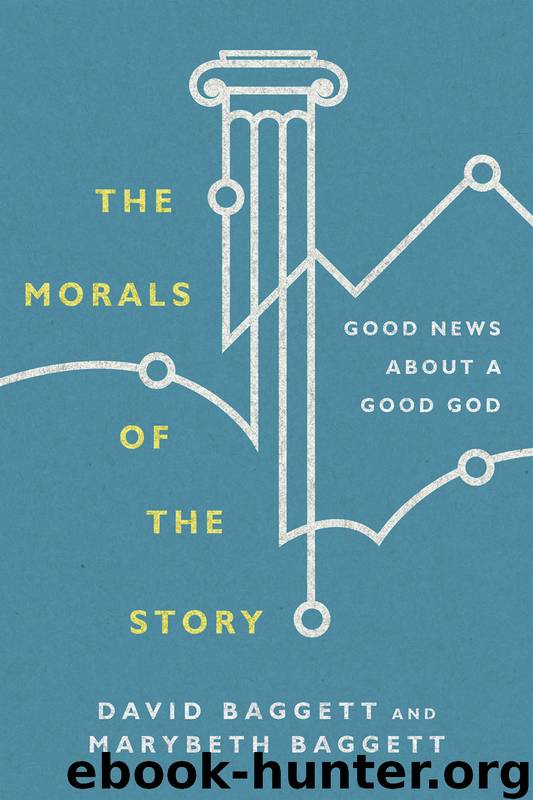The Morals of the Story: Good News About a Good God by David Baggett & Marybeth Baggett

Author:David Baggett & Marybeth Baggett
Language: eng
Format: epub, mobi
Tags: apologetics;morality play;does god exist;God;existence;God's existence;moral;moral argument;goodness;obligations;order;providence;transformation;Socrates;Plato;Augustine;Kant
ISBN: 9780830886494
Publisher: InterVarsity Press
Published: 2018-07-16T16:00:00+00:00
John Hare cites a related solution to Cudworth’s objection that can be found in John Duns Scotus and Samuel von Pufendorf. Both philosophers say that the justification of obedience to God terminates in something that does not itself need justification. For Scotus, the principle that God is to be loved is known from its terms. So it does not require any justification from any prior principle. We know that God is to be loved, and thus obeyed, simply because we know that God is the supreme good. Pufendorf, similarly, regards God’s authority as axiomatic, in the same way mathematics has axioms or first principles that merit belief upon their own evidence.16
We have outlined several related solutions here because the issue of God’s moral authority is so central to this discussion. The salient feature of moral obligations in particular, the feature at the heart of the Anscombe intuition, is their binding, prescriptive authority. Exploring this notion of moral authority, especially consideration of what lies behind it, can help us better understand the nature of the reality in which we live. As Lewis makes clear in Mere Christianity, right and wrong together clue us in to the meaning of the universe.
We seem to be going through a crisis of authority today, if the most recent election and its aftermath are any indication. Establishment has become a pejorative, with institutions such as the press and political parties crumbling from within and attacked from without. Historians will judge and explain the reasons for this, and human authorities are surely flawed and need to be held accountable. But the moral law that binds us has for its authority a being beyond reproach.
Obviously we can reject that authority, as our earlier discussion of free will notes. But if this moral authority is part of the fabric of the reality in which we find ourselves, rejecting our obligations is not a neutral undertaking. There is a price to pay. John Updike sought to make this plain in his literary response to Jack Kerouac’s 1957 novel On the Road. Kerouac’s semiautobiographical account is a celebration of a free-spirited life, where the main characters reject 1950s domesticity and take to the open road, with adventures filled with promiscuous sex, drugs, and music. The novel epitomizes the countercultural lifestyle of the Beat poets and the hippies, their cultural offspring.
Before he had even read it, Updike recognized a mistake at the heart of Kerouac’s story: “I resented its apparent instruction to cut loose; Rabbit, Run was meant to be a realistic demonstration of what happens when a young American family man goes on the road—the people left behind get hurt.”17 Theism offers a convincing explanation both of the authority behind a father’s obligation to his family and an account of how that authority is connected to the social frameworks in which we live.
Naturalism offers little to compare. This is what is at the heart of Plantinga’s recognition of the almost unique ability of obligations to provide moral evidence in favor of
Download
The Morals of the Story: Good News About a Good God by David Baggett & Marybeth Baggett.mobi
This site does not store any files on its server. We only index and link to content provided by other sites. Please contact the content providers to delete copyright contents if any and email us, we'll remove relevant links or contents immediately.
The Lost Art of Listening by Michael P. Nichols(6474)
Why I Am Not A Calvinist by Dr. Peter S. Ruckman(3771)
The Rosicrucians by Christopher McIntosh(3049)
Wicca: a guide for the solitary practitioner by Scott Cunningham(2704)
Signature in the Cell: DNA and the Evidence for Intelligent Design by Stephen C. Meyer(2501)
Real Sex by Lauren F. Winner(2474)
The Holy Spirit by Billy Graham(2418)
To Light a Sacred Flame by Silver RavenWolf(2353)
The End of Faith by Sam Harris(2289)
The Gnostic Gospels by Pagels Elaine(2026)
Nine Parts of Desire by Geraldine Brooks(2007)
Waking Up by Sam Harris(1958)
Heavens on Earth by Michael Shermer(1955)
Devil, The by Almond Philip C(1899)
Jesus by Paul Johnson(1887)
The God delusion by Richard Dawkins(1848)
Kundalini by Gopi Krishna(1824)
Chosen by God by R. C. Sproul(1760)
The Nature of Consciousness by Rupert Spira(1689)
